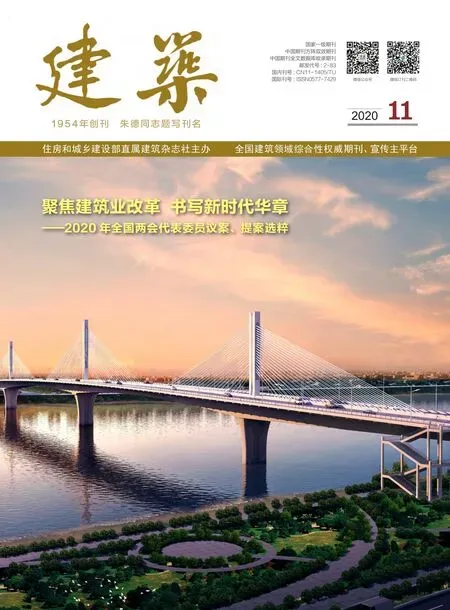工程合同译评(18)中国示范文本中的保险条款(上)
文 / 李 健
我们已经讨论完FIDIC1999 建造合同文本Conditions of Contract for Construction 第18 条保险Insurance 条款。今天我们来讨论中国示范文本(GF-2017-0201)中“18. 保险”条款翻译中涉及的语言、法律或工程问题。
在讨论之前,我们先提示一下两个文本涵盖的保险类别存在的细微差异。FIDIC1999 建造合同文本通过三个子条款显示了其三个保险类别,即18.2 Insurance for Works and Contractor’s Equipment 工程和承包商设备保险,18.3 Insurance against Injury to Persons and Damage to Property 人身伤害和财产损害保险,18.4 Insurance for Contractor’s Personnel 承包商员工保险。中国示范文本(GF-2017-0201)也是通过三个子条款显示其包含的保险类别的,即18.1 工程保险,18.2 工伤保险,18.3 其他保险;其中“其他保险”又包含了意外伤害保险和承包人施工设备保险。总体来看,形式上,两者分类标准不同;实质上,除了中国示范文本中的“工伤保险”的社会保险属性外,其余差异不大。但这种差别是中国示范文本体现中国立法的结果。
原文1:18.1 工程保险
除专用合同条款另有约定外,发包人应投保建筑工程一切险或安装工程一切险;发包人委托承包人投保的,因投保产生的保险费和其他相关费用由发包人承担。
试译:18.1 Insurance for Works
Unless there are different statements in the Particular Conditions, the Employer should insure the construction Works or the installation Works against all risks. When the Employer entrusts the Contractor to effect such insurance, the Employer must pay the premium and expenses arising from effecting the insurance.
点评:1.这里规定,在无相反约定的情况下,工程保险的投保义务人是发包人,由发包人承担保险费及其他相关费用。保险类别可以对应于FIDIC1999 文本18.2 Insurance for Works and Contractor’s Equipment 中的Insurance for Works 的部分。
2.关于保险的投保人的约定,中国示范文本(GF-2017-0201)与FIDIC1999 建造合同文本Conditions of Contract for Construction 稍有不同。FIDIC1999 在对需要办理保险的场合,统一规定一个投保人the insuring party,“insuring Party”means, for each type of insurance, the Party responsible for effecting and maintaining the insurance specified in the relevant Sub-Clause. 但并未笼统指出投保人是承包商或是业主,到底谁将是投保人,得看合同就具体保险标的subject matter of insurance 所做约定才能确定。中国示范文本则在每个保险类别下直接列明投保人是发包人(业主)或者承包人,例如,本条就直接约定工程保险的投保义务人是发包人。
3.通常情况下,建筑工程一切险或安装工程一切险allrisks insurance for Works,是针对各类工业与民用建筑工程项目建造过程中因自然灾害或意外事故引起的一切损失的险种,其责任范围主要包括cover 工程本身的物质损失以及由此而产生的费用。其中,由意外事故引发的损失中包括了工程因意外事故对第三人产生的赔偿责任,因为这种赔偿责任最终也转化为经济上的费用。因此,可以认为,建筑工程一切险或安装工程一切险包括了第三人责任险insurance against the third party liability.
4.特别注意,下列两种情况即使因工程项目建造过程中自然灾害或意外事故引起,但却不属于建筑工程一切险或安装工程一切险的保险范围:一是工程所有人、承包人、其他关系人及其雇用的在工地现场从事与工程有关工作的职员、工人的人身伤亡或疾病;二是工程所有人owner、承包人、其他关系人及其雇用的在工地现场照管、控制的财产发生的损失。这两种情况通常不被认作对第三人的责任范围。在中国,它们通常被列入了18.2 工伤保险或18.3 其他保险的范围了。
原文2:18.2 工伤保险
18.2.1 发包人应依照法律规定参加工伤保险,并为在施工现场的全部员工办理工伤保险,缴纳工伤保险费,并要求监理人及由发包人为履行合同聘请的第三方依法参加工伤保险。
18.2.2 承包人应依照法律规定参加工伤保险,并为其履行合同的全部员工办理工伤保险,缴纳工伤保险费,并要求分包人及由承包人为履行合同聘请的第三方依法参加工伤保险。
试译:18.2 Work-related Injury Insurance
18.2.1 The Employer must participate in work-related injury insurance in accordance with the Law, effect work-related injury insurance for all his Personnel working on the Site, and pay the premium. The Employer should require the Construction Project Management Enterprise and any third parties employed by the Employer to perform the Contract to participate in work-related injury insurance in accordance with the Law.
18.2.2 The Contractor must participate in work-related injury insurance in accordance with the Law, effect work-related injury insurance for all his Personnel working on the Site, and pay the premium. The Contractor should require his sub-contractors and any third parties employed by the Contractor to perform the Contract to participate in work-related injury insurance in accordance with the Law.
点评:1.这里规定了发包人和承包人各自办理自己员工工伤保险的义务及相关要求。保险类别可以对应于FIDIC1999 文本18.3 Insurance against Injury to Persons and Damage to Property中Insurance against Injury to Persons的部分。
2.中国《工伤保险条例》Regulations on Work-related Injury Insurance 第二条规定,中华人民共和国境内的企业、事业单位、社会团体、民办非企业单位、基金会、律师事务所、会计师事务所等组织和有雇工的个体工商户应当依照本条例规定参加工伤保险,为本单位全部职工或者雇工缴纳工伤保险费。All types of enterprises and individually-owned business must participate in work-related injury insurance and pay the premium for all of the staff and workers or hired workers in accordance with the Regulations. 在中国,工伤保险属于社会保险social security或social insurance 范畴,不属于商业保险business insurance或commercial insurance。在这个性质上,Work-related Injury Insurance 与FIDIC 的Insurance against Injury to Persons 不同。
原文3:18.3 其他保险
发包人和承包人可以为其施工现场的全部人员办理意外伤害保险并支付保险费,包括其员工及为履行合同聘请的第三方的人员,具体事项由合同当事人在专用合同条款约定。
除专用合同条款另有约定外,承包人应为其施工设备等办理财产保险。
试译:18.3 Other Insurances
The Employer and the Contractor may effect accident injury insurance for all their persons on the Site respectively and pay the premium, including their personnel and persons from any third parties employed to perform the Contract. The Employer and the Contractor may specify the details in the Particular Conditions.
Unless there are different statements in the Particular Conditions, the Contractor should effect property insurance for the Contractor’s Equipments.
点评:1.这里规定的“其他保险”包含了承包商施工设备保险和中国《建筑法》The Construction Law of the PRC 规定的意外伤害保险,大致对应于FIDIC 文本中的Insurance against Injury to Persons、Insurance for Contractor’s Personnel,以及Insurance Contractor’s Equipment。但这里的“其他保险”,不属于社会保险,而属于商业保险。
2.中国《建筑法》第48 条规定,建筑施工企业应当依法为职工参加工伤保险缴纳工伤保险费。鼓励企业为从事危险作业的职工办理意外伤害保险,支付保险费。Construction enterprises must pay the premium and effect work-related injury insurance for all of the staff. Construction enterprises are encouraged to pay the premium and effect accident injury insurance for workers engaged in dangerous operations.从《建筑法》适用的“鼓励”措辞看,意外伤害保险不属于建筑施工企业的“强制性compulsory”义务。当事人可以选择是否办理意外伤害保险。
3.提示一个细节问题。承包人应为其施工设备等办理财产保险,the Contractor should effect property insurance for the Contractor’s Equipments. 这里用Equipments 来译“施工设备”,而没有采用plants,这是因为两者在国际惯例Practice 中含义不同。在FIDIC 中,“Contractor’s Equipment” means all apparatus,machinery, vehicles and the remedying of any defects. However,Contractor Equipment excludes Temporary Works, Employer’s Equipment (if any), Plant, Materials and any other things intended to form or forming part of the pavement works. “Plant” means the apparatus, machinery and vehicles intended to form or forming part of the Permanent Works.也就是说,Equipments 在文本中指施工的工具;而Plants 则将被安装到工程中成为工程的一部分。
事实上,建筑施工中的系列保险制度在中国的实践中并不发达,中国示范文本中的这些规定在很大程度上是对成熟市场经济国家及国际惯例中保险理念的借鉴,还是粗线条的。落实到工程实践中,投保险种、保险范围、保险期间、保险金额、除外责任等还有待于合同当事人在专用条款中作出具体约定。

